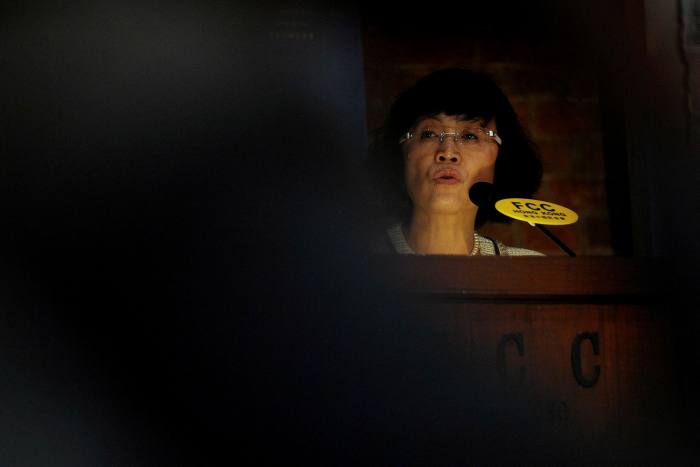Beijing targets top financial news outlet Caixin in media crackdown
China’s internet watchdog has said articles from Caixin, one of the most prominent and trusted Chinese business publications, can no longer be republished by online news services, in the latest blow to journalism and free speech in the country.
The Cyberspace Administration of China (CAC) removed Caixin from a list of more than 1,300 media sources approved for domestic republishing.
China’s media landscape is facing immense pressure as the Chinese Communist party, under President Xi Jinping, redoubles efforts to control access to information in the world’s most populous country.
David Bandurski, co-director of the China Media Project at the University of Hong Kong, said Caixin’s omission “marks the further consolidation of party controls over news creation and distribution”.
“The goal is to ensure that the growing universe of digital media products is politically disciplined when it comes to sourcing news and discussion of current affairs,” Bandurski added.
Caixin is highly respected as a rare example of an independent media outlet in China that has survived a slow-burning erosion of critical journalism during Xi’s almost decade-long tenure.
Under founder and chief editor Hu Shuli the award-winning publication built a formidable reputation for investigative journalism and exposés of financial malfeasance, while not shirking away from covering companies with links to high-ranking officials. It has also been credited with producing important coverage of the early days of the coronavirus outbreak in Wuhan.

Joanna Chiu, a journalist, expert on Chinese media and author of China Unbound, said the CAC’s move was not “a particularly harsh crackdown on Caixin that would affect its current daily operations”. However, she added that it “will probably be taken by Caixin editors as a warning that further repercussions could follow in the future”.
“Unfortunately, the few remaining independent Chinese media outlets have already long been self-censoring and in the current worsening climate. I think outlets like Caixin will err on the side of caution and self-censor more of its reporting,” Chiu said.
“Since their main audience is in mainland China, they essentially don’t have much of a choice, since Chinese authorities could easily ban their online and print publications in China.”
People close to the company played down the impact of the CAC list, noting that the company already relies on a subscription model and paid licensing.
Bandurski also noted that Caixin’s content is mostly protected by a paywall, and the outlet has not encouraged wider distribution through prominent Chinese social media channels.
Caixin could not immediately be reached for comment. Journalists at the news organisation declined to comment, citing company policy.
The CAC’s list was last updated five years ago.
In a statement, the regulator warned that authorities must strictly manage “illegal” investigations and reporting and cut off such information at the “source”.
Cédric Alviani, head of the east Asia office of Reporters Without Borders, described Xi’s strategy on media controls as “very clear, and unfortunately, very efficient”.
“First, he increased control on professional media, professional journalists, then there was a huge crackdown on non-professional journalists who were reporting information,” Alviani said. “Now that it is very hard to report information, he is cracking down on those who can forward information.”
The release of the CAC’s list followed months of intensifying scrutiny and censorship of blogs and social media sites covering China’s financial markets and economy.
The crackdown on financial commentary has sparked warnings from investors and economists in China and internationally about the difficulties of obtaining reliable data on the world’s second-biggest economy.
“We are in a situation in China that is unseen in modern times . . . Unfortunately we are reaching an era when anything that is not expressly allowed by the regime is going to be forbidden,” Alviani said.
Additional reporting by Emma Zhou in Beijing and James Kynge in Hong Kong
For all the latest Business News Click Here
For the latest news and updates, follow us on Google News.
